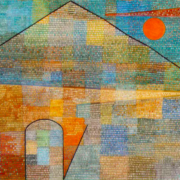A path of family violence: from the family of origin to the adoptive family. The story of Akos
Abstract
This piece of work illustrates how adoptive paths are often transformed into difficult and painful situations as the history of the family of origin of the adoptive child is unacknowledged and the traumatic situation that is often at the origin of the request for adoption is underestimated. As Alberto Eiguer states when he speaks of the unconscious reasons that can structure the request for adoption in the couple. “…They dream of finding a child who has lived a difficult situation in order to save him, but ignore the fact that they are reacting according to the trans-generational history of their family: abandonment and maltreatment could have been a past family reality.” (Eiguer, 2007). The adoption of Akos is inserted in a history of unknown violence, where maltreatment, abuse and abandonment are the only words which appear in the meagre/poor and superficial biography Read more

